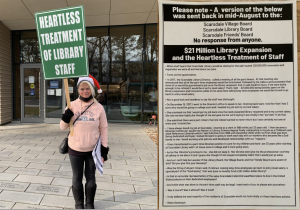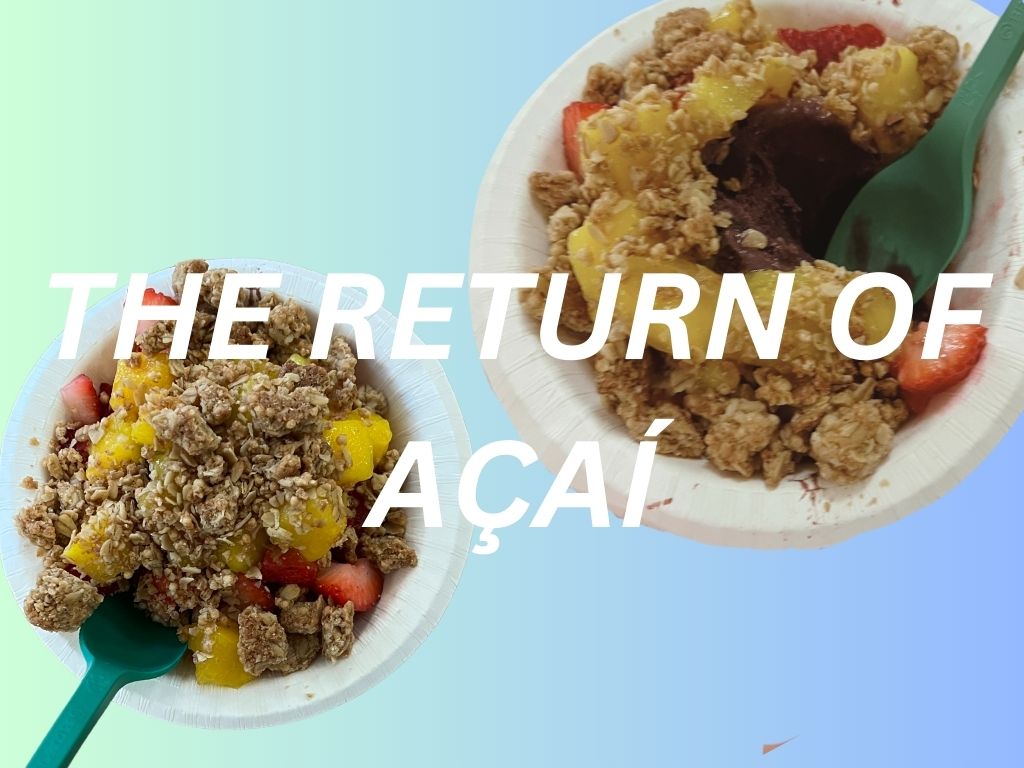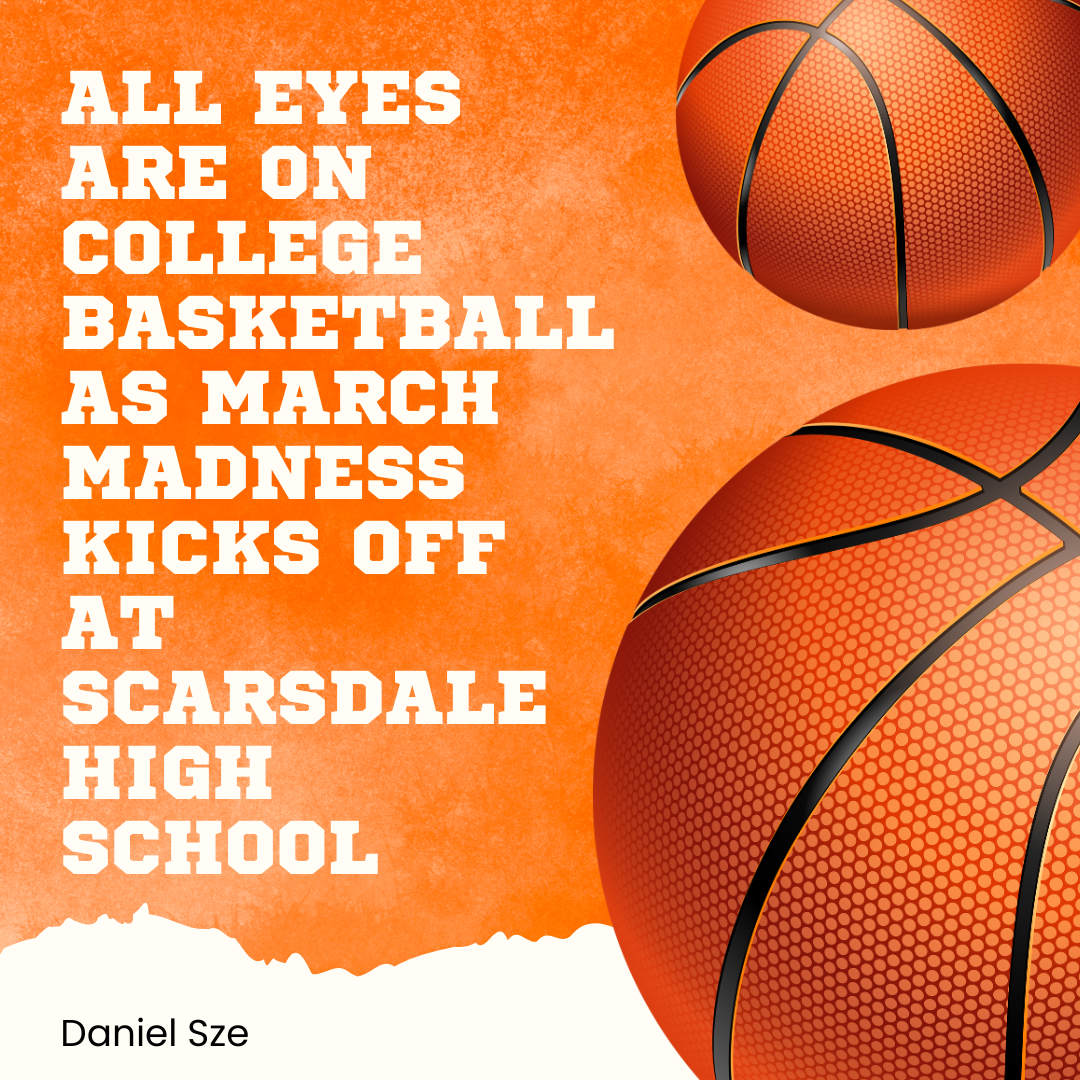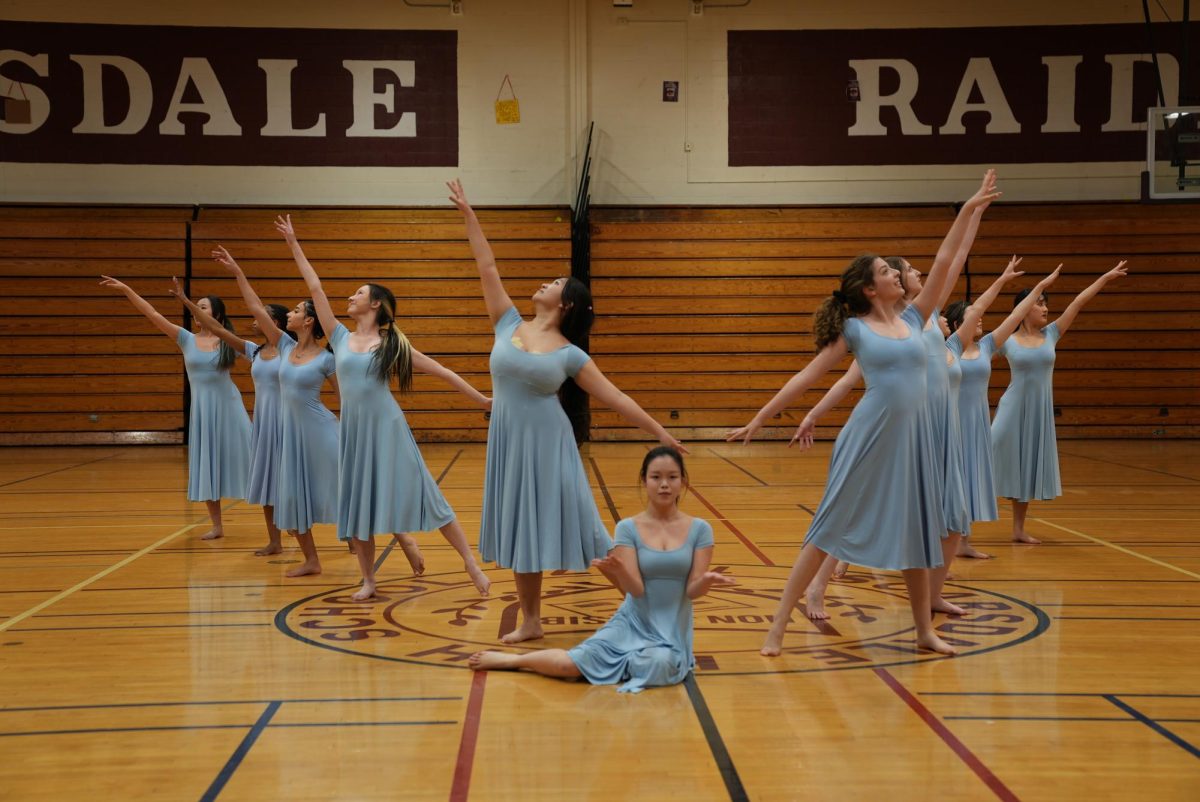Students, Stress, and SHS

November 23, 2015
Students at Scarsdale High School are forced to endure stress on a daily basis. In previous years, the faculty has formed the Wellness Committee, a group that focuses on relieving stress. A stress survey was conducted in early November in order to better understand how they should take action. The leaders of this committee, SHS English George Olivier and SHS Dean Iosepovici discuss what this survey truly entails.
-Mr. Olivier
Can you talk a little bit about the survey and what it entails?
“We gave a window of about a week and a half to administer the survey to all the students during English class. The survey was designed by Stanford University, and they have been surveying lots of schools in America and in Canada. It is not only a survey to see what is going on here, but it also is a survey that can be compared to other schools, so we can see how our stress levels compared to those of other schools. It gives an idea to see if we are like other people or if we are way out of whack. A lot of the questions have to do with school experience and parental experience. In other words, pressure from academics but also pressure from parents. It asks questions about the effects of your school experience. Are there times when you do not have time for family because of homework?
We thought we needed a survey because not a lot of teachers are convinced that [stress] is a problem. I’ve heard anecdotal evidence, but what we need is reliable data and factual information. Hopefully, the data will give credence to what we do.”
What do you think will come out of the survey?
“There is a lot of momentum for possible changes, but I do not know how big those will be. They may be small, but even small changes might make a difference. I think some of the things that you guys are experiencing, I don’t know if we can solve. For example, testing days are very stressful. We’ve had four different types of testing, and I don’t think any of them actually work.
I would like to see that decisions in the school are made not for academic reasons or scheduling reasons but they’re made for student-wellness reasons. To me, that would make a major difference. We’re also looking at small, specific changes that a lot of schools in the country are starting to do, like no homework weekends and vacations. Mostly, the changes have to do with time; trying to change the stress of the day.”
How soon can we expect to see changes?
“I think the first year [this year] is really about starting the conversation. I think changes could start next year but more likely two years down the road. One of the ideas we’ve been toying with was having a full lunch class instead of this 25 minute lunch. Would that reduce stress? That could start as early as May. When the seniors leave, we may try to see what it would be like to have one lunch for the whole school. Other schools that do this have kiosks around the school, so Giannoni’s could have a booth and there could be a pizza parlor.”
Are you personally connected to this issue in any way?
“I feel that this school is way too academic; it does not need help academically. Everyone likes to say that we are ahead in so many ways, but where we are behind is [student and staff] wellness. Nobody talks about it. I just thought it was such an important thing. The other piece is that my daughter is now a tenth grader, so I see what high school is like. When I went to high school, it was not this stressful. I got in a month the amount of homework you guys get in a night. This is crazy. Personally, I don’t think working should be so stressful.”
Does the stress reach the teachers too?
“We’re always working. We’re too busy to talk to each other. I’m always carrying loads of papers. The kids say, ‘Give less work.’ Well, okay I’d love to give less work, but there’s also this pressure to give grades and justify the grades. If I give you a B+ and I’ve only given one essay, you can say ‘You didn’t give us enough essays!’ So, I have to give at least three essays, but then I’m grading for the rest of my life. So, yes, the stress really reaches the teachers.”
Dean Iosepovici
How does the survey work?
“…Originally, we had Mr. Bonamo last year ask the faculty to get involved in a bunch of different initiatives. A lot of the faculty were interested in student wellness and stress. At the end of the year, Mr. Bonamo wanted to see which [initiative] the faculty would move forward on, and [student wellness] was the most popular of the three different initiatives. George Olivier and I are leading a committee of faculty looking at student wellness, and we wanted to figure out what is actually going on out there. There are other schools and agencies that have done some research to figure out exactly what is stressful for students, so we came across the organization called “Challenge Success,” which is affiliated with Stanford University.They do a survey called the “Challenge Success Survey,” where they try to get into the academic experience that kids are experiencing in high school…The “Challenge Success Survey,” [is what] we’re conducting through English classes. It’s about a 30-40 minutes survey, and then within 4-6 weeks, we’ll get results back, and then we’ll have a sense in terms of what direction we wanna go.”
Do you have any predictions for what the results will be?
“I think we all have a sense… [of] what causes stress. It’s a high pressure community. Parents move here for education, so that college piece is always looming out there. Beyond that, the levels of classes kids take, how much work they put on, and how [many extracurricular activities] they take on … [are stressors]. For the most part, we’re trying to keep an open mind and see what the data brings forward, and then we can take it from there. Unfortunately, because of confidentiality reasons, we couldn’t really touch so much on the social part of things, which I think also causes some stress for students, in terms of friend dynamics and family dynamics. There are some open-ended questions in the survey, where kids can certainly talk about that stuff, but they’re aren’t so many specific questions. So, that’s probably one thing that’s lacking in the survey.”
Does the committee have any idea what some possible changes might be, once they receive the results?
“The results will really drive changes. We’re trying not to preempt what the survey is going to say, and we want to keep an open mind and take a look at data that we get back, and then put together constituencies that impacted students, teachers, parents, just to figure out a way to move forward. Once we get the results, my sense is that we’ll get students and parents involved, though I don’t think it’s going to be an overnight process, nor do I think all of a sudden, Scarsdale’s going to be a stress-free place. But, we’re hoping to maybe focus on a couple different areas, nothing too big, but a couple small areas that maybe we can make changes to. But, we can only control what we can control. There are so many variables and factors that we can’t control.”
How soon do you think any possible changes would be enacted?
“Do I think you’re going to see results in a month or two? No. Do I think you’re going to have at least some actionable plan by the end of this year? I do. I’m hoping that at least by the end of next year you’re going to see some direction and some changes being made. I think one of our biggest questions is sort of, how do you maintain the rigor of this place, but also manage for some of the other factors. That’s a tough thing to balance.”
Do you have any personal reasons as to why you got involved with the wellness committee?
“As a dean and as a counselor, I see [stress] everyday in my office. So much of what I deal with, besides supporting kids through their academic journeys, is the ‘behind the scenes’, the enormous amount stress and pressure that kids here feel to be successful. The reason I got into this profession was not to only talk to kids about college but also to be there for kids, to support kids, to be there for their emotional side, and I think this survey is a good fit with that. We have about 15 teachers that are involved with the committee, and I know we’re all sort of concerned about the same thing. Again, we don’t think it’s going to be this miracle that happens. We’re all hoping to make a little bit of a change.”
Do you have any advice for stressed students?
“It’s tough. I’ve worked at other schools before, where there is this enormous pressure to be exceptional. You have parents that are really highly educated, that have established great careers and great lives for their kids. So, then where do you go from here? The competition here also breeds so much stress. I would like students to know that there are a lot of different paths to success in life, and that it’s not just about the college. I’m sure you’ve heard this before, but it’s really about the experiences you create for yourself and just trying to be happy. Because at the end of the day, whether you get a C or a B in a class, it’s not going to determine your life. How you handle the ups and downs of life, that resilience, that ability to keep moving forward and to not let the little things get in your way- that’s how you become successful.”
Interviewed by Rebecca Newman and Sarah Bowen






















